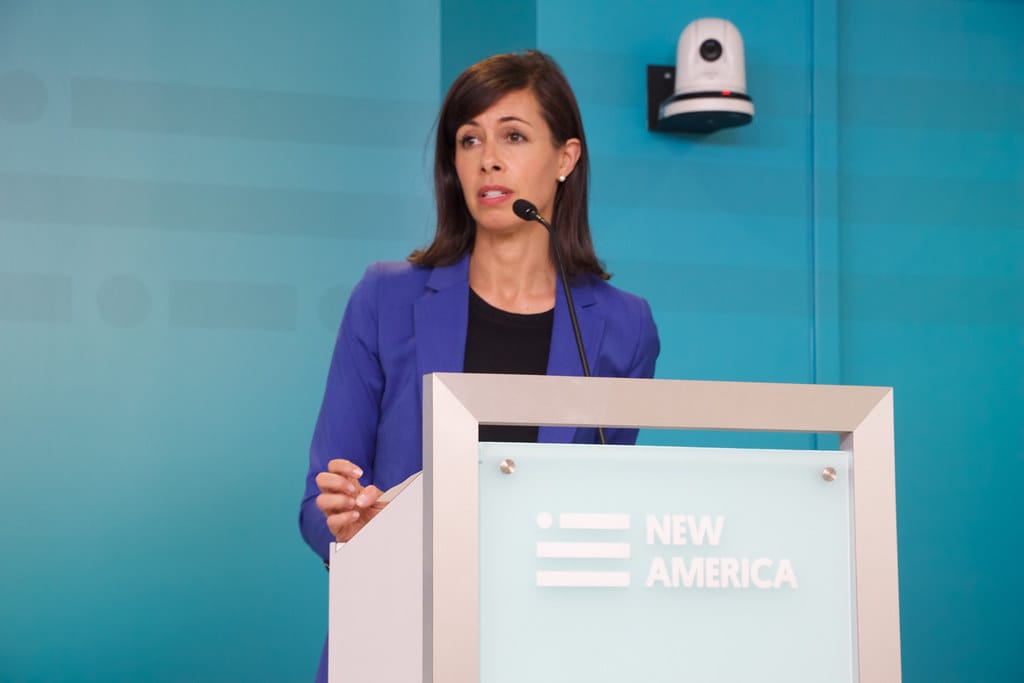Rosenworcel Says Carr’s Big Tech Proposal for Universal Service Fund ‘Intriguing’
Forcing Big Tech to contribute to the Universal Service Fund is intriguing, but up to Congress, Rosenworcel says.
Ty Perkins

June 7, 2021—Federal Communications Commission Acting Chairwoman Jessica Rosenworcel said commissioner Brendan Carr’s proposal to force Big Tech to contribute to funding broadband projects in rural and unserved America is “intriguing.”
“We should be open to new ideas,” said an FCC statement to Broadband Breakfast, confirming a story first reported by Communications Daily last week. “But it’s clear that this would require action from Congress.”
Carr said in a May 24 op-ed published by Newsweek that Big Tech has not paid their “fair share” in funding broadband infrastructure. He says that Big Tech companies, like Amazon, Apple, Netflix, Alphabet, Microsoft and Facebook, have benefited from what taxpayers have funded and should contribute to the ecosystem.
Currently, the Universal Service Fund, a fund used to finance new broadband infrastructure projects, is funded through taxes on telephone service. However, those contributions to the fund are increasing as voice service revenues decline, leading to what Carr calls a system that is “not sustainable” and “on the verge of collapse.”
While Congress looks at the legislative avenues to get Big Tech contributions into the USF, he recommended the FCC open a proceeding to look into ending the monthly tax on telephone service and make Big Tech contribute to the fund.
Carr is “highlighting the urgent need to address the meltdown of the current subsidy program for low-income Americans,” said Joan Marsh, AT&T executive vice president of federal regulatory relations, according to Communications Daily. Verizon and T-Mobile have not commented on the proposal.
Other proposals for USF
At an event earlier this year, AT&T’s Mary Henze, assistant vice president of federal regulatory affairs, said a broader pool of players contributing to the fund would reduce the overall stress on individual companies or consumers.
That event, hosted by the Federal Communications Bar Association, fleshed out other proposals for stabilizing the fund, including replacing the existing system with one Congress funds through general tax revenues or broaden the base to include the broadband revenues of telecommunications companies.
Carr said the former proposal would not be ideal, due to an inconsistent Congressional budget and a growing concerns over the national debt.








Member discussion